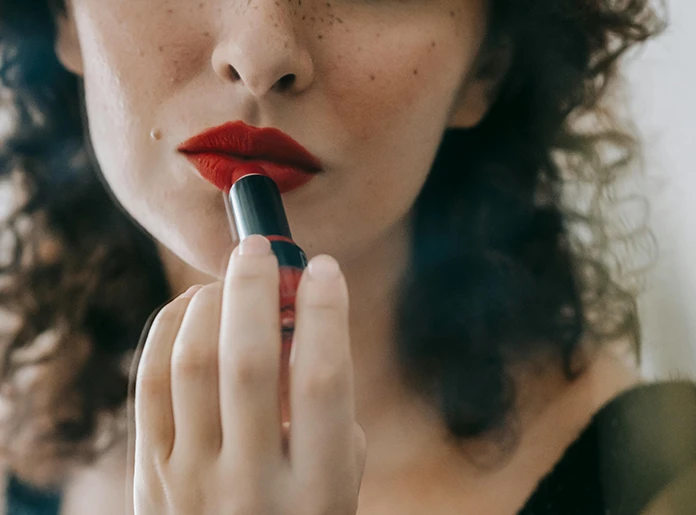
As we get older, we lose fat and collagen in our bodies, and it becomes significantly noticeable on our faces, such as our lips, where every gram of fat and collagen can affect our overall appearance. Sun damage can also worsen these effects, along with smoking and your genes. Because of this aspect of the aging process, many people turn to lip augmentation, a process that uses lip or dermal filler to plump the lips for a more defined look.
In 2020 alone, over 3.4 million people received filler injections for various reasons. These same people will also need follow-up treatments to maintain their desired appearance. The timing of this can be hard to predict, though, as lip filler can migrate or disappear depending on several factors. Let’s examine those factors and what you can expect when seeking lip filler.
How Long Does Lip Filler Last?
The effects of lip filler can last a varied amount of time, depending on factors like your lifestyle, metabolism, other bodily functions, and the type of lip filler. Generally speaking, expect lip filler to last from three to 18 months.
Types of Lip Filler Available
The most significant factor behind the longevity of your lip filler depends on the type of filler you receive. Professionals divide fillers between semi-permanent and permanent categories. Semi-permanent fillers are often made from biocompatible materials, making them less abrasive. Still, they’re most likely to dissolve faster than more synthetic materials, and you’ll need follow-up treatments sooner than others. They typically last from three to 18 months. Permanent fillers take longer to break down — anywhere from 18 months to three years.
Lip fillers can be used for other dermal fillers as well, but practitioners have found the following products to be particularly useful for lip augmentation and filling:
- Hyaluronic acid: This semi-permanent filler naturally occurs in the body and is found in soft connective tissues, cartilage, skin tissue, and tissues surrounding joints. Its effects last up to six months. Hyaluronic acid provides thicker, fuller lips by connecting to the water molecules in skin tissue. Prominent brand names include Restylane and Juvaderm.
- Polyalkylimide: This filler is biocompatible, meaning it reacts little with human tissue, and you can remove it if you’re unhappy with the results. Otherwise, it can last from 12 to 18 months. Popular name brands include Aquamid.
- Polylactic acid: Examples of polylactic acid include Sculptra. As a semi-permanent filler, it can last 12 to 18 months. It’s also a stimulant that activates your body’s production of collagen. Unlike other fillers, though, it can take up to several months to see its full effects.
- Polymethyl-methacrylate microspheres (PMMA): Otherwise known by brand names such as Bellafill, PMMA is a more permanent filler that lasts more than 18 months. Practitioners also use it in collagen replacement therapy.
Ultimately, your choice of filler depends on your compatibility — you may have to complete an allergy test beforehand, especially if you want a permanent filler. Permanent fillers are also more challenging to remove, so if you’re on the fence about the results, it may be better to opt for semi-permanent fillers as they’re easier to remove.
How Does Your Body Interact With Lip Filler?
As mentioned, various factors can break down lip fillers faster than typically expected. Notably, metabolism plays a significant role. Experts aren’t exactly sure why this is, but there is anecdotal evidence that leaner individuals need follow-up treatments faster than others. If you need lip filler treatments faster than your physician expected, you may need to adjust the filler formula to account for these differences.
There is more evidence that other factors like stress, UV damage, alcohol intake, and physical inactivity can also break down the effects of lip filler faster. Anything that puts your body under stress can hasten the breakdown process.
In addition, how you use and how often you use your lips can affect the filler’s longevity. Since the more common lip fillers, such as hyaluronic acid, are primarily made of bonds that connect with the water molecules in your lips, these bonds will break down due to friction.
How to Tell When It’s Time to Get Your Fillers Redone
But how exactly do you tell if you need lip fillers redone? It can be difficult to tell, especially if you expect your lips to look the same even a couple of months after your treatment, when, in actuality, your body will break down the effects slowly over time. While it is true that you will need lip filler sooner if it is your first time, you won’t need lip fillers as often as it continues to compound with continued treatments.
You’ll know you need fillers when your lips look more deflated, wrinkles appear, or your makeup settles differently. If you’re unsure, consult one of our qualified practitioners for advice.

Are Lip Fillers Healthy?
The short answer is yes, lip fillers can be perfectly safe and healthy for you as long as you seek out a qualified professional. Otherwise, you could be at risk for adverse effects such as discomfort or even infection. A certified practitioner, however, will do everything they can to prevent this from happening.
For example, your practitioner may advise against lip fillers if you have an oral infection or a bleeding disorder. If you have an allergy, they may perform an allergy test on different fillers before proceeding.
You may also experience discomfort if you overfill your lips, which can extend the healing process.
Aftercare Tips to Prolong Results
To prolong the effects of your lip filler, you’ll want to avoid several activities that could potentially stress the skin tissue, including:
- Exposing yourself to UV damage, including tanning beds and sun exposure;
- Exercising within 24 hours of treatment;
- Using lip balm while healing;
- Pursing or biting your lips;
- Using straws;
- Smoking;
- Going to the dentist;
- Putting pressure on your lips, whether by sleeping on your face or kissing.
Once you heal, use lip balm regularly to keep your lips hydrated. You should also drink plenty of water during and after the healing process to keep your lips nice and plump.

Where to Get Long-Lasting Lip Filler in Detroit
Because there are risks with lip filler, like any other cosmetic product, you must find a qualified professional in your area. Qualified practitioners will also help you find a long-lasting filler that meets your needs.
When picking a practitioner, read reviews online to see what others have experienced. You can also make sure they’re board-certified.
We at Theia Aesthetics can help you achieve your lip filler goals thanks to our team of qualified professionals.
Conclusion
All in all, expect your filler to last anywhere from three to 18 months. If you have a fast metabolism or put your body under stress, you may need to redo your fillers sooner rather than later.
Although your choice of filler may vary depending on your lifestyle and desired results, a qualified team of professionals can help you achieve this goal in a safe and healthy way. With these considerations in mind, you can live your life with the confidence of your dreams.
FAQs About Lip Filler
Can Lip Fillers Be Permanent, and What Are the Risks Associated With Permanent Fillers?
While some fillers claim to be permanent, they often come with higher risks of complications, such as lumps, migration, and dissatisfaction. It’s crucial to weigh the potential benefits against these risks and consult with a professional.
Are Lip Fillers Reversible if I’m Unhappy With the Results?
Many hyaluronic acid fillers, the most common type, are reversible with an enzyme called hyaluronidase. This can dissolve the filler and help adjust or correct results.
How Soon After Getting Lip Fillers Can I Resume Normal Activities, Including Exercising and Wearing Makeup?
While recovery times vary, most individuals can resume normal activities immediately after lip filler injections. However, it’s recommended to avoid strenuous exercise for the first 24 hours and minimize makeup application to reduce infection risks.
Can I Combine Lip Filler Treatments With Other Cosmetic Procedures?
Combining treatments should be approached cautiously. It’s essential to consult with your practitioner to determine the safety and appropriateness of combining lip fillers with other procedures.
Are There Age Restrictions for Getting Lip Fillers?
While there is no strict age limit, practitioners often consider factors like maturity and realistic expectations. It’s crucial to have a thorough consultation to assess if lip fillers are suitable for the individual.
Can Lip Fillers Affect My Ability to Smile or Make Facial Expressions Naturally?
When administered by a skilled professional, lip fillers should enhance your natural features without hindering facial expressions. It’s important to communicate your preferences and concerns during the consultation.
What Is the Recommended Aftercare for Minimizing Bruising and Swelling?
Applying ice packs, avoiding blood-thinning medications, and following the aftercare instructions provided by your practitioner can help minimize bruising and swelling post-treatment.
Is It Safe to Get Lip Fillers During Pregnancy or While Breastfeeding?
The safety of lip fillers during pregnancy and breastfeeding is not conclusively established. It’s generally recommended to postpone cosmetic procedures until after pregnancy and breastfeeding to prioritize the well-being of both the mother and child.
Can I Get Lip Fillers if I Have a History of Cold Sores?
Individuals with a history of cold sores should inform their practitioner, as the injection process can trigger outbreaks. Antiviral medications may be recommended to minimize the risk.
How Do I Find a Reputable and Qualified Practitioner for Lip Filler Treatments?
Read reviews, ask for recommendations, and ensure the practitioner discusses your goals, expectations, and potential risks during a thorough consultation.


